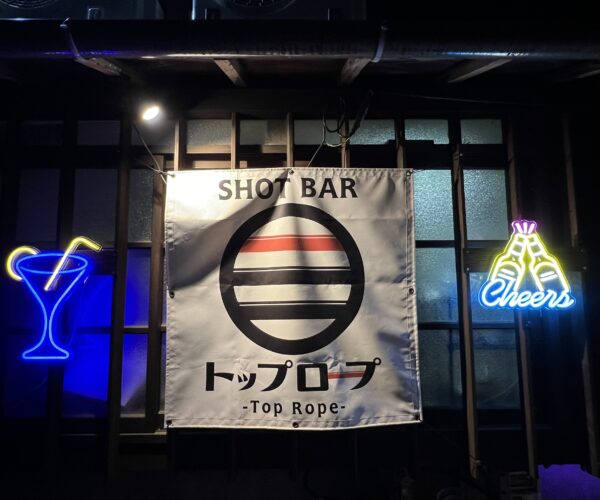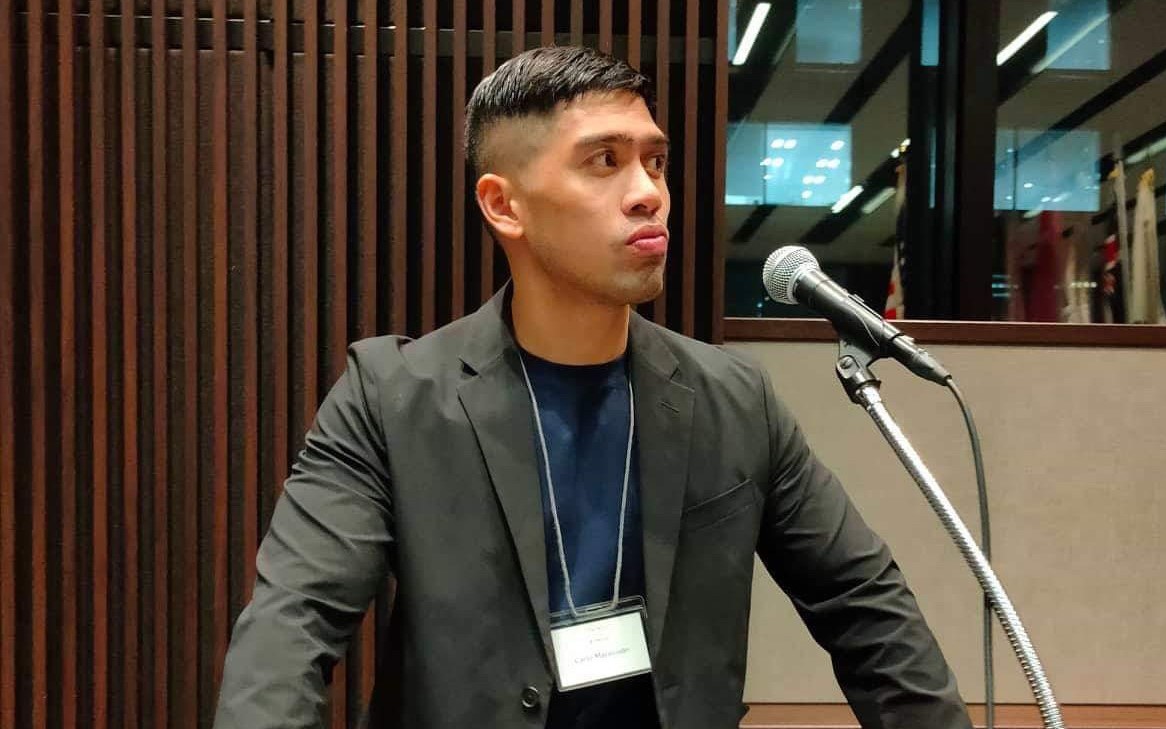Please introduce yourself and where you’re from!
My name is Carlo Marasigan. I am a high school English teacher in Davao City, Philippines and the present head of JETAA-Philippines. I am a fan of music, travel, fitness, and innovation. I don’t hate anything or anybody. I passionately learn new things until I master them. I’m the type of person who listens to advice but at the end of the day, does things that please my heart and feel right to me.
Where and what did you study?
I earned a Bachelor’s Degree in Secondary Education major in English from Ateneo de Davao University in 2010 where I was one of the directors of AIESEC-Davao, an international student organization chapter. In 2018, right after two years on the JET programme, I resumed my Master’s Degree in Education and am expecting to graduate this April of 2020.
Where were you placed on JET and for how long?
I lived and taught English in Obama City, Fukui Prefecture from 2016 to 2018. I remembered the moment when I got accepted into the programme and received my placement. It was such a blissful event that I didn’t care that I didn’t know anything about the place I was being sent to. It was a good thing, however, that I got ahold of my predecessor, and he told me everything he could tell me about my next residence for the next couple of years. It took experience, though, to validate what he shared with me, and I realized I had the privilege to call such a magical city my home.
What is your current career?
I am currently an English teacher at Ateneo de Davao Senior High School. It has always been my passion to teach. And it has always been one of my life-long missions to better pedagogical practices of educators. That is why I am also currently doing action research on instructional innovations such as gamification, game-based learning, and communities of practice.
What were some memorable experiences you had on JET and/or how did the JET experience as a whole shape you to who you are today?
Japan has always been a dream destination for me to work and live, and the JET programme has granted me this wish, which I had enjoyed and cherished for two years. A memorable experience I had during the programme was to endure not having internet in my apartment for three weeks. My phone only had a limited amount of data, and the net provider told me to wait. Being somebody who surfs the web as a habit and a hobby, it was a real struggle. Though it was one the challenges I faced whilst living in the country, it opened an opportunity for me to explore my home in Obama.
Having limited Japanese, I depended on others. Because of my dependence on them, I was able to make friends and in time, developed a family-like bond with these buddies. Unfortunately, I cannot bring my Japanese-speaking friends with me in the classroom. This spelled another unforgettable experience for me. I was greeted with blank stares when I communicated with my students using the very basic and broken Japanese I knew, and then having to fall back to English and physical gestures. Their reaction exhibited a challenge for me to overcome. Luckily, I could sense their intense curiosity as to who I really was and where I came from. From there, I shared and they learned. That linear communication bore interactive and engaging conversations. From our English classes to the English club, I was able to meet great kids in my main school’s basketball team.
Basketball is considered a religion for many Filipinos and through the sport, we were able to communicate on a deeper level and exchange valuable learnings way beyond the four corners of our English classrooms. This relationship pushed me to stretch my work as an ALT and extend my reach as a cultural ambassador of my country. After living in Obama for two years, I was fortunate to have made many close friends and the closest relationship I had was with the school’s basketball squad. I am truly grateful for the kindness extended to me.
On a professional level, being a JET Programme participant taught me to be flexible in my thinking and how to communicate and work successfully with different kinds of people, especially those who I spend time with in school. I learnt how to be resourceful, resilient, and proactive in order to achieve my work goals. These types of skills and experiences that the JET programme gives are highly transferable across various roles and personally speaking, I have greatly benefited from my JET experience in my professional life since completing the program.
It is, however, false to say that the whole journey affected me just professionally. The whole JET adventure also influenced me to always strive to be a better version of myself and be a caring person for others, and whenever I look back on this entire experience, I always feel grateful to the country, its people, and the JET programme.
How did JET help you in achieving your current career pathway or any professional endeavors?
Being an Assistant Language Teacher (ALT) has job limitations. I was limited by a lot of things. I can’t discipline students or take certain actions against unwanted learner behaviors. As an ALT, I was an outsider, and I think that appeals to other students who also feel left out. Because of this unapparent isolation, I’ve worked with a lot of students who are different from their peers. They are those who have anxieties and insecurities about themselves and others. They might not speak in class because of their unpopular opinions, but they find an ear in me and open up about what they have been meaning to share. This particular experience enhanced one important quality a teacher should possess, and that is compassion. I arrived in Japan with my desire and passion to educate and to learn. And my ALT work enhanced these teacher passions, along with my compassion as an English instructor among other qualities.
I taught in a high school in the deep south of Fukui prefecture. You may consider my home in Japan as a rural town where malls and shopping centers are rarely seen. The same can be said about its number of visiting tourists. But the school looked different from its surrounding environment. It had over a thousand students and in my first year into the programme, I was immediately immersed in their classes. Despite my rich experience in the teaching profession, I must admit there was definitely an adjustment period. Once I settled in, I began my mission to teach them English and share my Filipino culture and where the Philippines is on the map. Towards the start of my second year, I was tasked to teach two year levels of classes with different English degrees. Though this was not as different as teaching only one whole year-level of student groups, the assignment gave a new atmosphere that offered me a different feeling and experience of English instruction.
To this day, amongst all the experiences I’ve had in the Land of the Rising Sun, it is being in the classroom with my students and my co-teachers that has been most rewarding and enjoyable. The experience was a learning treasure that reminded me of what a teacher should be and can still become. At present, I am an English teacher, and looking back at my JET teaching moments affirms my purpose and life-goal as an educator who not only teaches but inspires.
Do you have any advice for JETs who might be looking into a similar pathway after their time on the program?
I may not be the best adviser here. Though I may look like I may have a dream job here in my home city, living my life’s purpose, and am on my way to earning a Master’s degree, I don’t see myself contributing more where I am right now. My eyes are set on a return to Japanese soil. It is in Japan where I see I can make an impact not just for the country, but for my Philippine home, as well. But this is a discussion for another time. The JET experience is different for every participant in the programme. Some learned a lot amidst all the studying and engaging in intellectual and educational activities before, during, and after ALT work, while others learned and developed skills during their personal time. Though being smart is a very impressive trait, I believe it is knowing how to do things that matters in the long run. As the JETAA head of the Philippines, I have witnessed and known a number of JET alumni here and from other countries that made use of their JET-earned and enhanced skills to get where they are right now. These skills include classroom instruction, program development and management, leadership, public speaking and presentations, and a whole lot more.
However, making good use of these skills requires having a destination. Where do you plan to go? You need to answer this question first before responding to a skills-related question such as ‘how do you plan to get there?’. Answering these questions does not take overnight. It takes time, and the decision you make out of your answers may be pivotal and can be life-altering. The results can be for the better or for the best. All that it is still uncertain until you make it certain yourself.




